Rule 2024-17 fails. Brent Regan adjourns the meeting.
There is disagreement in the committee whether Clark’s proposed rule should be amended to Article XX (as written) or Article XII of the party rules.
Trent Clark presents 2024-17, which would disallow using “covert video” from churches as part of a judicial investigation. This is a specific reference to video of former State Committeeman Damond Watkins telling his church in North Carolina that he was putting down roots despite claiming to still reside in Idaho.
2024-11 through 2024-16 fail on a 9-5 vote.
Trent Clark presents the case for rules 11 through 16, restoring voting rights on the executive board for the leaders of the three affiliate clubs.

Trent Clark moves to consider 2024-11 through 2024-16 together, as they all address the ability of the leaders of the College Republicans, Young Republicans, and Republican Women to vote on the executive board. Motion passes.
2024-10 passes, with the caveat (as Regan says) that they will figure out where exactly in the rules it will go.
Lisa Keller present 2024-10, which would handle counties creating new precincts in between election years. Trent Clark explains that there is a 1976 memo from the Secretary of State’s office regarding this issue.
2024-9 passes quickly.
Brent Regan calls an end to debate due to time. 2024-8 passes (as amended) to general session tomorrow.
A motion was made to postpone 2024-8 indefinitely, but it failed. Heath’s amendment passed.
Heath’s amendment was pre-written, so members of the committee are currently reading through it.
Heath proposes an amendment to his own rule that leaves the appellate process in place but removes the 5 year ballot prohibition.
We’re back. The proposed rule gives lawmakers the opportunity to appeal to the State Executive Board should their local committee censure them twice, invoking their removal from the primary ballot.
Five minute recess. To be continued!
Next up is 2024-8, which strengthens the platform enforcement rule by allowing committees to keep candidates off the GOP primary ballot. Hari Heath is presenting.
2024-6 dies for lack of a motion.
More discussion about 2024-6. I can see both sides on this.
Regan asks about the impact of forcing members of the committee who live many hours away to attend these meetings rather than signing over proxies. Chandler replies that proxies take away from the ability of committee members to hear the discussion and debate.
Kirk Chandler of Washington County is presenting rule 2024-6 which would completely replace proxy votes with alternates at every level.
Jensen’s rule 2024-5 fails for lack of a second.
Brent Regan asks why this rule is needed now, since if Greater Idaho succeeds, it will be a slow moving process that we will see coming. “I don’t see any harm in doing this, but I don’t see the need either.”
Matt Jensen of Ada County presents a rule that would clarify how the Idaho GOP would handle organizational matters should the Greater Idaho movement succeed and bring Eastern Oregon into Idaho.
Steve Bender is presenting a rule to allow the state chair to appoint a political treasurer for a county committee that has lost their officers. Bender explains that other recent changes have obviated this proposal, and recommends that it not go forward. 2024-4 fails for lack of a motion.
2024-3 passed unanimously.
Slow going. The committee continues to discuss the details of 2024-3.
Remember that any rule approved by the committee tonight must still be passed by the entire State Central Committee in general session tomorrow.
Paul Ross presents 2024-3, which would allow voters who move after 12/31/23 but before the caucus on March 2 to vote in their new location after signing an affidavit. The rule would also clarify that county results would be announced simultaneously by the state party.
2024-7 passes the committee unanimously.
Mark Johnson moves to replace the word “should” with the word “shall”. This is an important thing to remember when writing rules or law. Motion passes.
Regan asks to jump to 2024-7 without objection, since it is about the same subject. Mark Fuller presents the rule, which disallows a state party officer from chairing a judicial proceeding remotely.
Rule 2024-2 passes the committee and will be heard in general session tomorrow.
Fuller says that the judge in the Bingham case first asked if there was any process in the Idaho GOP rules regarding litigation. Because there wasn’t, he issued an injunction. Fuller says that adding this rule would give judges the ability to tell the party committees to work things out themselves before involving the legal system.
Mark Fuller is presenting 2024-2, regarding the process of appealing a decision of the state chair. This seems to be in response to the Bingham County GOP’s lawsuit against the state party regarding Chairwoman Dorothy Moon’s decision that they conducted their chairman election improperly. (See the executive board liveblog for more information on that.)
Trent Clark and Paul Ross argue that changing the name of PCs within the party will lead to unforeseen consequences. The committee votes unanimously to postpone the rule indefinitely, effectively killing it.
Click here to read the proposed rules before the subcommittee tonight.
Hari Heath presents a rule to standardize the nomenclature for PCs as “precinct captains”. Regan explains that he must rule it out of order if not amended, as Idaho code refers to precinct representatives as “precinct committeemen”.
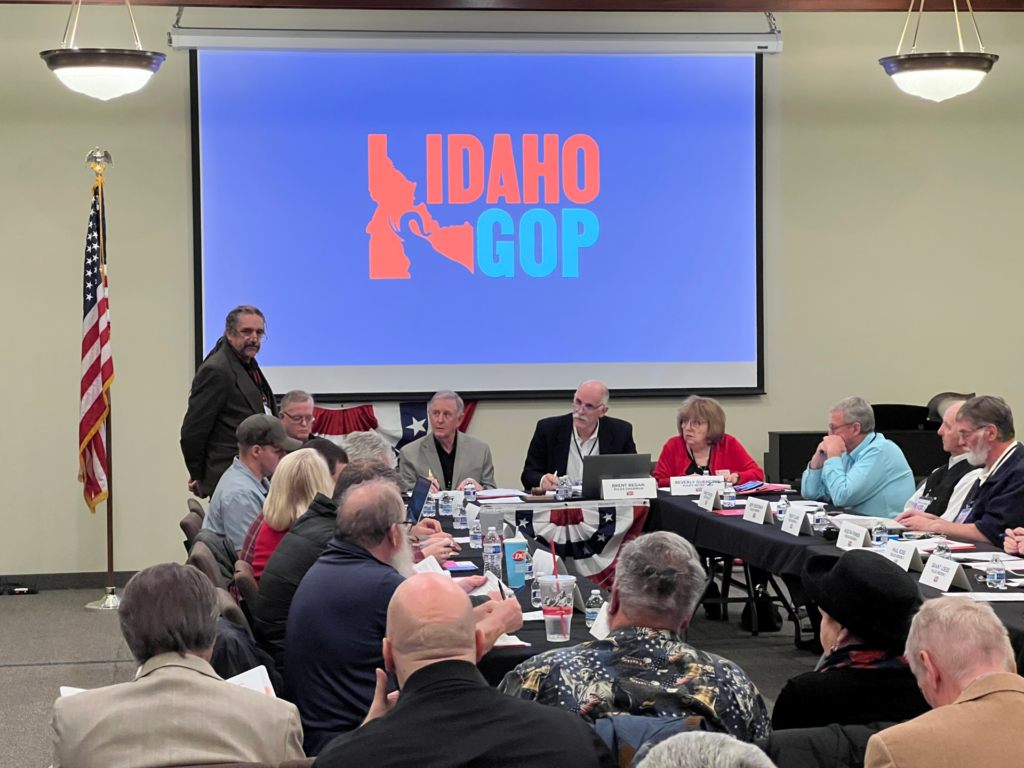
Rules secretary Machele Hamilton is absent due to injury, so Beverly Guenette from Kootenai County will serve that role tonight.
KCRCC Chairman Brent Regan calls the Rules Committee meeting to order.
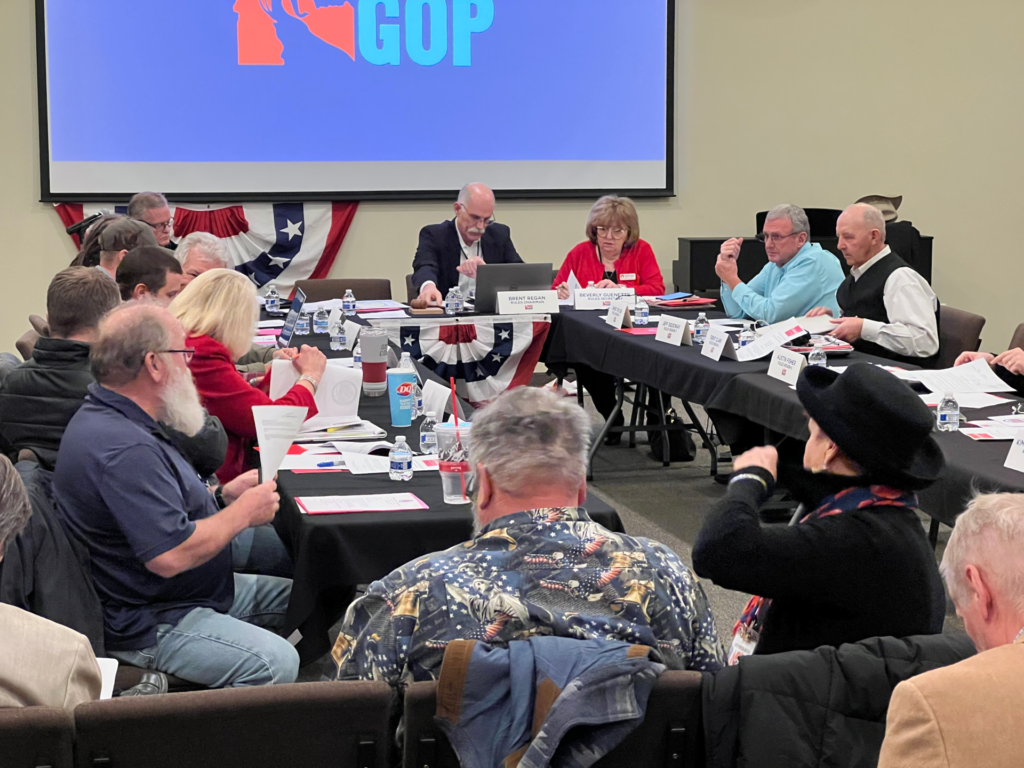
Stay tuned for live updates from the Idaho Republican Party Rules subcommittee meeting tonight starting at 6pm MST.
About Brian Almon
Brian Almon is the Editor of the Gem State Chronicle. He also serves as Chairman of the District 14 Republican Party and is a trustee of the Eagle Public Library Board. He lives with his wife and five children in Eagle.




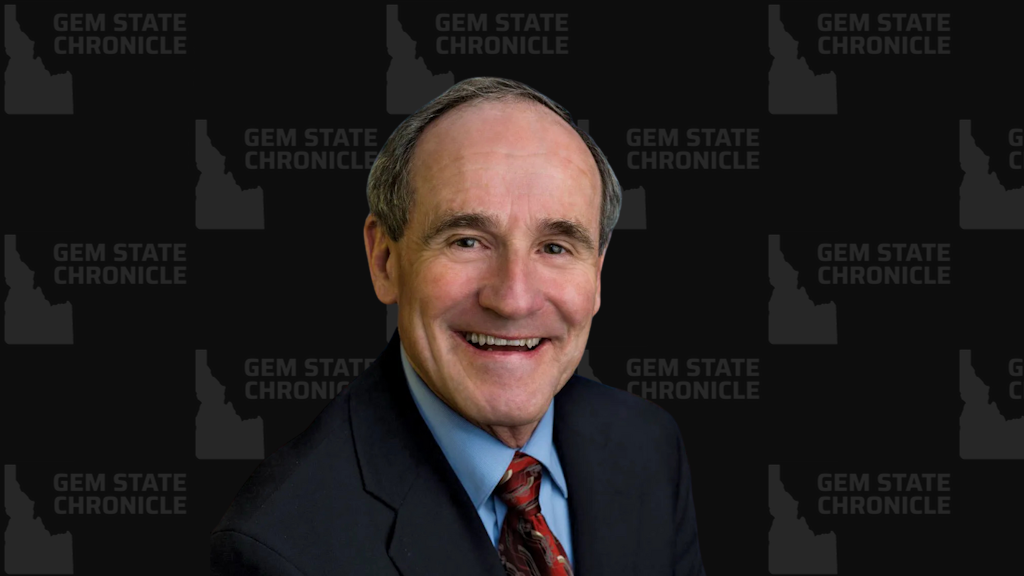





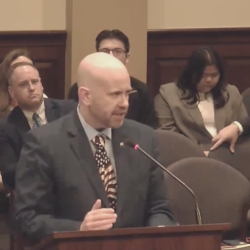
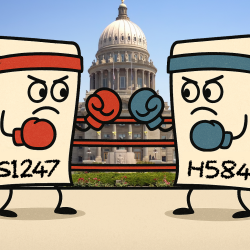
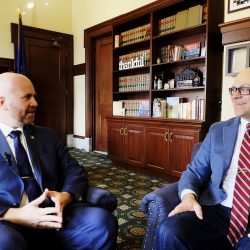

2 Comments
Comments are closed.